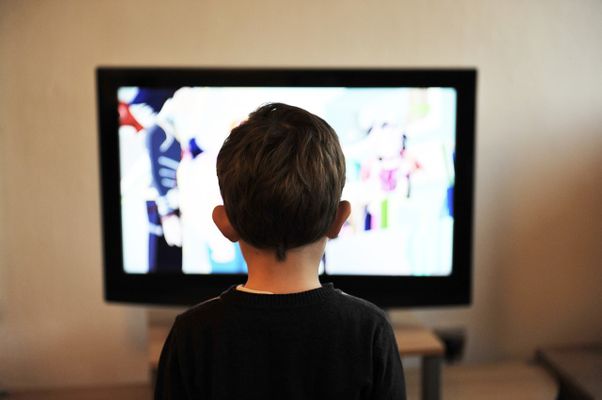4.4.4
The Disappearance of Childhood
The March of Progress
The March of Progress
Many sociologists argue that the position of children in contemporary society is vastly improved from what it was in the past, while other sociologists argue that it has worsened.


Changing positions
Changing positions
- Many sociologists argue that the position of children in contemporary society is vastly improved from what it was in the past, while other sociologists argue that it has worsened.
- Sociologists, like Postman, insist that advertising and sexualisation have led to the disappearance of childhood.


Functionalist consensus
Functionalist consensus
- Functionalists argue that society is adapting in a ‘march of progress’ towards a more harmonious society that functions to the benefit of all.
- They believe that introduction of compulsory education and the move towards a more child-centred approach is an improvement in what came before.


Functionalist consensus cont.
Functionalist consensus cont.
- The lives of children have improved greatly in comparison to the past, with better healthcare leading to a lower infant mortality, more nutritious diets and laws that protects the rights of children.


Marxists and feminist conflict theories
Marxists and feminist conflict theories
- Marxists and feminists argue that the march of progress view conceals the underlying power inequalities, conflicts and problems that children face.
- There are substantial inequalities between children based on social class, gender and ethnicity.


Inequality
Inequality
- Legal constraints placed on children means that they lack the same legal rights as other groups.
- Marxists and feminists would argue that this a form of social control that undermines their independence and make them dependent on adults.
- Children are unequal to adults and are, therefore, oppressed by them.
- Dependence on adults leaves children open to abuse by them, particular in the home.


UNICEF
UNICEF
- Britain’s children are some of the unhappiest in the Western world according to UNICEF, who found that children in the UK are more prone to:
- Poor physical and mental health.
- School failure.
- Dysfunctional relationships with parents and peers.
The Disappearance of Childhood?
The Disappearance of Childhood?
Many sociologists argue that the position of children in contemporary society is vastly improved from what it was in the past, while other sociologists argue that it has worsened.


Exposure
Exposure
- Neil Postman argues that the distinction between adults and children is weakening and that there is a merging of tastes, styles and experiences that once separated these life stages.
- Children are no longer sheltered from adult experiences and knowledge due to the growth of global media, especially on the Internet.


Adult themes
Adult themes
- This exposure to adult themes, such as sex, crime, alcohol and drug abuse, leads to children committing more adult crimes, leading to the erosion of cultural divisions between childhood and adulthood.


Money
Money
- Cunningham argues that parental authority has been undermined because children are getting pocket money or earning it through part-time work.


Consumerism
Consumerism
- According to Margo, the access that children now have to advertising is unprecedented, transforming them into consumers who demand access to the adult world earlier.


Technology
Technology
- Palmer suggests that, because there are working longer hours, parents are becoming more reliant on technology (such as TV and computer) to keep children occupied.
- Palmer argues that this dependency on technology results in ‘toxic childhood syndrome’ where children are being deprived of a proper childhood.
Changing Not Disappearing
Changing Not Disappearing
Many sociologists argue that the position of children in contemporary society is vastly improved from what it was in the past, while other sociologists argue that it has worsened.


The changes
The changes
- Other sociologists argue that childhood, rather than disappearing, is simply changing.
- Childhood culture continues to thrive, but is more independent from adults, which means that parents are less able to manage childhood.


The Internet
The Internet
- The Internet in particular provides children with a range of knowledge and imagery that parents aren't necessarily aware of, creating a new childhood culture beyond the limits of adults.


Consumerism
Consumerism
- Consumer markets create and feed childhood culture and children are still financially dependent on their parents.


Child rights
Child rights
- Western views of children spread via globalisation, with growing opposition to child labour, the use of child soldiers and the abuse and neglect of street children.
1Theory & Methods
1.1Sociological Theories
1.2Sociological Methods
2Education with Methods in Context
2.1Role & Function of the Education System
2.2Educational Achievement
2.3Relationships & Processes Within Schools
3Option 1: Culture & Identity
3.1Conceptions of Culture
3.2Identity & Socialisation
3.3Social Identity
3.4Production, Consumption & Globalisation
4Option 1: Families & Households
4.1Families & Households
4.2Changing Patterns
4.3The Symmetrical Family
4.4Children & Childhood
5Option 1: Health
5.1Social Constructions
5.2Social Distribution of Healthcare
5.3Provision & Access to Healthcare
5.4Mental Health
6Option 1: Work, Poverty & Welfare
6.1Poverty & Wealth
7Option 2: Beliefs in Society
7.1Ideology, Science & Religion
7.2Religious Movements
7.3Society & Religion
8Option 2: Global Development
8.1Development, Underdevelopment & Global Inequality
8.2Globalisation & Global Organisations
8.3Aid, Trade, Industrialisation, Urbanisation
9Option 2: The Media
9.1Contemporary Media
9.2Media Representations
10Crime & Deviance
10.1Crime & Society
10.2Social Distribution of Crime
Jump to other topics
1Theory & Methods
1.1Sociological Theories
1.2Sociological Methods
2Education with Methods in Context
2.1Role & Function of the Education System
2.2Educational Achievement
2.3Relationships & Processes Within Schools
3Option 1: Culture & Identity
3.1Conceptions of Culture
3.2Identity & Socialisation
3.3Social Identity
3.4Production, Consumption & Globalisation
4Option 1: Families & Households
4.1Families & Households
4.2Changing Patterns
4.3The Symmetrical Family
4.4Children & Childhood
5Option 1: Health
5.1Social Constructions
5.2Social Distribution of Healthcare
5.3Provision & Access to Healthcare
5.4Mental Health
6Option 1: Work, Poverty & Welfare
6.1Poverty & Wealth
7Option 2: Beliefs in Society
7.1Ideology, Science & Religion
7.2Religious Movements
7.3Society & Religion
8Option 2: Global Development
8.1Development, Underdevelopment & Global Inequality
8.2Globalisation & Global Organisations
8.3Aid, Trade, Industrialisation, Urbanisation
9Option 2: The Media
9.1Contemporary Media
9.2Media Representations
10Crime & Deviance
10.1Crime & Society
10.2Social Distribution of Crime
Unlock your full potential with Seneca Premium
Unlimited access to 10,000+ open-ended exam questions
Mini-mock exams based on your study history
Unlock 800+ premium courses & e-books